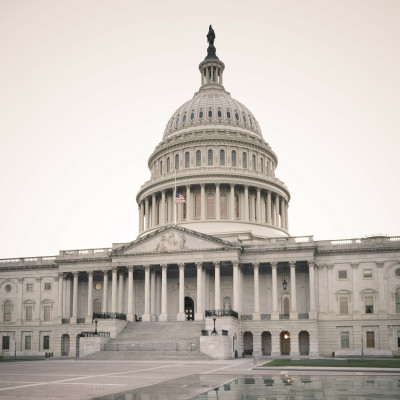Taking the Pulse of Health Care Policy

In the world of health care public relations, we are tasked with staying up to date with industry trends, elevating reputations and developing earned media plans. As a Washington D.C.-based agency, we have the advantage of being close to policy action so we can keep tabs on what our clients need to know about the fast-moving developments in health care. Here are the top issues we are watching this fall from Congress and the White House, and why they are worth paying attention to.
Drug Pricing
After years of promising to reduce drug costs, Congress is poised to take policy action, launching at least nine bills that take aim at pharmacy benefit managers (PBMs) or companies that channel prescription drugs to patients. Elsewhere, The White House, as part of the Inflation Reduction Act, made a historic move in announcing the ten drugs selected for price negotiation under the law. This is the first-ever direct drug-price negotiations between pharmaceutical manufacturers and Medicare, and it would have far-reaching implications in reducing costs and expanding the availability of medicines that are crucial for America’s seniors.
Drug Shortages
Significant and dangerous medication shortages have surfaced in recent months, with more than 300 prescription drugs, including critical chemotherapy treatments, being in short supply. The situation is forcing almost 60% of health systems to ration or even postpone care. Congress is considering several policies including a GOP-led effort aimed at enforcing accountability in the drug market by improving transparency and mandating the provision of additional information about manufacturing and distribution. Additionally, The Senate Subcommittee on Health is also poised to consider a bipartisan proposal known as The Drug Shortage Prevention Act that would require producers of prescription drugs to notify the FDA as soon as they anticipate being unable to meet the demand.
Pandemic Preparedness
With the fall season of respiratory illnesses upon us, Congress is also considering how to bolster the public health system to anticipate the inevitable return of the flu, RSV and COVID-19. By October, The Pandemic and All Hazards Preparedness Act expires and requires re-authorization. The act is the backbone of the nation’s public health response, as it accelerates public-private partnerships to develop vaccines and take other actions. Additionally, both chambers of Congress are taking up policy measures to support emergency response and pandemic preparedness. Elsewhere, The White House took action by announcing the appointment of Dr. Paul Friedrichs, a retired Air Force combat surgeon who helped execute the Pentagon’s COVID response, to head the new White House Pandemic Office. He will oversee efforts to fund vaccine development in time to meet these challenges.
Treat and Reduce Obesity Act of 2023
The Treat and Reduce Obesity Act was recently reintroduced in the House and Senate and will have far-reaching impact if passed. The bipartisan bill would authorize an expansion of Medicare coverage to include screening and treatment of obesity from providers who specialize in obesity care and include coverage of behavioral counseling, prescription drugs for long-term weight manage. The passage of TROA would be a key catalyst to expanding access to obesity treatment across the board, and therefore, improve the health of millions of Americans.
The future for all these important issues remains highly unpredictable, along with proposals effecting Medicaid, health care price transparency and mental health. One thing that is certain, however, is that The Reis Group will be following all this very closely to make sure our clients are well positioned to succeed.




